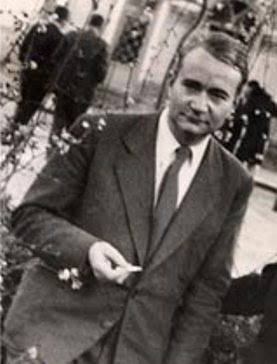 |
| Henry Corbin |
Henry Corbin (14 April 1903 - 7 October 1978) was a philosopher, theologian and professor of Islamic Studies at the Sorbonne in Paris, France.
Corbin was born in Paris in April 1903. As a boy he revealed the profound sensitivity to music so evident in his work. Although he was Protestant by birth, he was educated in the Catholic tradition and at the age of 19 received a certificate in Scholastic philosophy from the Catholic Institute of Paris. Three years later he took his "licence de philosophie" under the great Thomist Étienne Gilson. In 1928 he encountered the formidable Louis Massignon, director of Islamic studies at the Sorbonne, and it was he who introduced Corbin to the writings of Suhrawardi, the 12th century Persian mystic and philosopher whose work was to profoundly affect the course of Corbin’s life. The stage was then set for a personal drama that has deep significance for understanding those cultures whose roots lie in both ancient Greece and in the prophetic religions of the Near East reaching all the way back to Zoroaster. Years later Corbin said “through my meeting with Suhrawardi, my spiritual destiny for the passage through this world was sealed. Platonism, expressed in terms of the Zoroastrian angelology of ancient Persia, illuminated the path that I was seeking.”
Corbin is responsible for redirecting the study of Islamic philosophy as a whole. In his Histoire de la philosophie islamique (1964), he disproved the common view that philosophy among the Muslims came to an end after Ibn Rushd, demonstrating rather that a lively philosophical activity persisted in the eastern Muslim world – especially Iran – and continues to our own day. (From Wikipedia)


